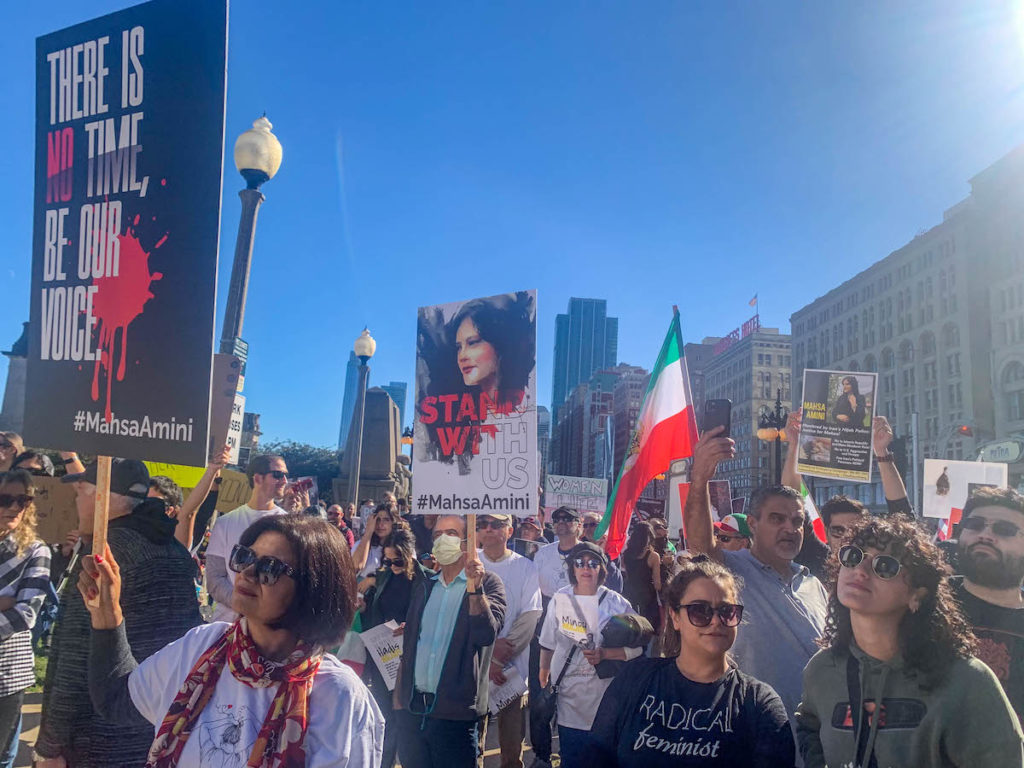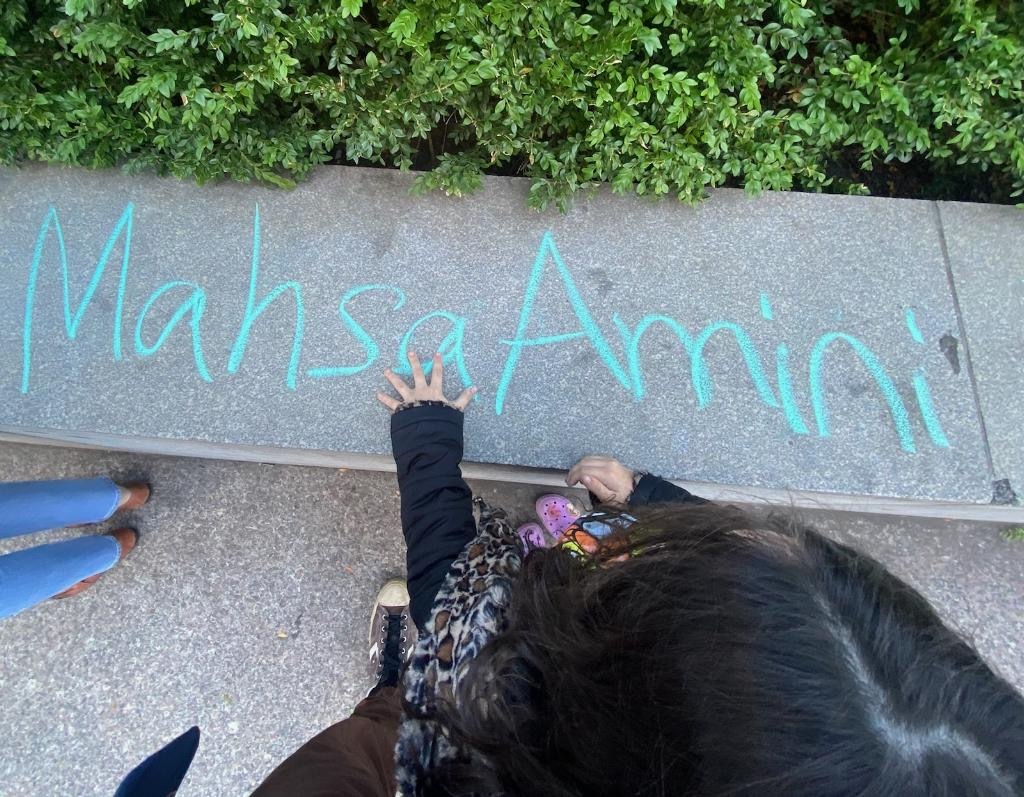On Saturday afternoon, nearly a thousand demonstrators marched down Michigan Avenue to protest the death of Mahsa Amini, a twenty-two-year-old Iranian-Kurdish woman who, on September 16, was allegedly beaten to death by the morality police in Tehran, Iran for not wearing her hijab correctly. To show solidarity for Amini and the women in Iran, similar protests took place in over 150 cities across the world on Saturday. Iran itself is now in their third week of protests.

Despite internet restrictions in Iran following the protests, violent videos have made their way to Twitter, showing students and people beaten and shot with tasers by security forces. According to human rights groups, more than ninety people, including children, have been killed.
According to media reports, Amini was traveling with her family to Tehran when she was stopped by the regime’s morality police. The police alleged she was not wearing her hijab correctly but the regime denies she was beaten and claims she died from a heart attack. Women in Iran have been required to wear the hijab in public since the 1979 Islamic Revolution.
A United Nations (UN) expert said in a report to the Human Rights Council that women are mistreated and abused, pointing to domestic violence, marriages of girls aged between 10 and 14, and the existence of discriminatory laws that require women to seek a husband’s permission for travel or make decisions about her career. But today, Iranian women from all walks of life are removing their hijabs and burning them in cities like Tehran, Qom and other large Iranian cities, at a scale never seen before in the country.
In Chicago, the desperation was felt on Saturday. Sahar, a demonstrator who recently came from Iran and didn’t want to provide her full name, said the anger has been building up for a while. Sahar explained that the protests have erupted in Iran for many other reasons too. She pointed to poverty, inefficient agriculture and economic sanctions as some of the main problems facing Iran today, and said people can get in trouble for speaking out against the government through music, social media, and at universities. “Everyone [at the protest] is angry because we had to leave our country because we needed freedom,” she said.
But this type of violence is not only present to Iran. Last year, Mayor Lori Lightfoot unveiled a $25 million plan to combat gender-based violence in Chicago and to address the increased rates of women experiencing domestic violence, particularly during the pandemic, as well as intimate partner violence, human trafficking and homicide. While advocates think the funds are crucial, they worry the plan isn’t specific enough and hope it helps find an end to the murders of Black women in Chicago.
And women from all over the world have been rising up against gender-based violence and discrimination, such as in Mexico, Chile, Argentina and Brazil. In Latin America and the Caribbean, at least one out of every three women has experienced physical and/or sexual abuse. And while twelve women lose their lives to these crimes every day, ninety-eight percent of these murders go unpunished.
Holding up a sign with the phrase, ‘Women Life Freedom,’ Sahar said, “It could be any of us.”
Organizers encourage those who want to support Iranian women to sign the petition End the bloodshed in Iran with Amnesty International.
Alma Campos is the Weekly’s Immigration editor

